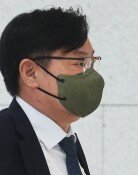Why we envy Obama`s TPP communication
Why we envy Obama`s TPP communication
Posted October. 08, 2015 07:43,
A day after the Trans-Pacific Partnership (TPP) agreement was reached, U.S. President Barack Obama had an interview with a radio broadcaster on the free trade deal at the Oval Office on Wednesday (local time). Immediately after the agreement, he said in a statement, "We cant let countries like China write the rules of the global economy," declaring that the TPP was aimed at strengthening the U.S. rebalancing in Asia. On the following day, he explained in person the complex details of the deal.
When things got a little difficult as he explained the significance of the agreement, in which the TPP participants agreed on "a set of principles in terms of how you measure and what constitutes currency manipulation," he took a real example, saying, "As a consequence of this deal, Vietnam is not going to suddenly have U.S. labor standards. On the other hand, by us for the first time getting Vietnam to agree that they have to prohibit child labor, they have to prohibit forced labor."
After the interview, he visited the Department of Agriculture for a meeting with business and agricultural leaders. In an attempt to soothe some concerned people involved in agriculture, he said he would not sign the agreement if he is not confident that the TPP is a good thing for U.S. workers, entrepreneurs, farmers and ranch owners. On Wednesday afternoon, he and Michelle Obama plan to have a dialogue with workers at the White House over the TPP`s impact on the U.S. labor market.
Obama`s extensive efforts to sell the TPP were quite impressive because it contrasted with the South Korean government`s attitude following the agreement. Despite calls for Seoul`s participation in the multilateral free trade deal, the government had shown no response since it expressed its "interest" in the deal in 2013. Now that the agreement was reached, the government seems to be hurrying up. Finance Minister Choi Kyung-hwan told the National Assembly on Tuesday that he would consider ways for Seoul`s participation "in any form." However, the public has many questions as to why the government had delayed the decision, why it is seeking to participate all of a sudden, and what are the pros and cons for Korea.
Some people say that Korea already has free trade agreements in effect or to take effect with 10 of the 12 TPP countries and that Seoul should not be too concerned because the TPP is a lower-level deal than free trade agreement. The public want to hear from their government whether this is true.
As Seoul and Washington have different styles of government and cultures, it is not fair to directly compare on an equal level how the governments explain major state agendas to their peoples. However, it is regrettable that the South Korean government does not seem to take the TPP issue seriously enough without minimum communication with the public, even though the deal is a symbol of U.S-China competition for hegemony and would have great impacts on Korea`s economic territory.
ddr@donga.com
Headline News
- Med professors announce intention to leave hospitals starting Thursday
- Bridge honoring Sgt. Moon Jae-sik unveiled in Pennsylvania
- Chief of Staff Chung tells presidential secretaries to stay away from politics
- US FTC bans noncompete agreements
- N. Korea launches cyberattacks on S. Korea's defense companies







